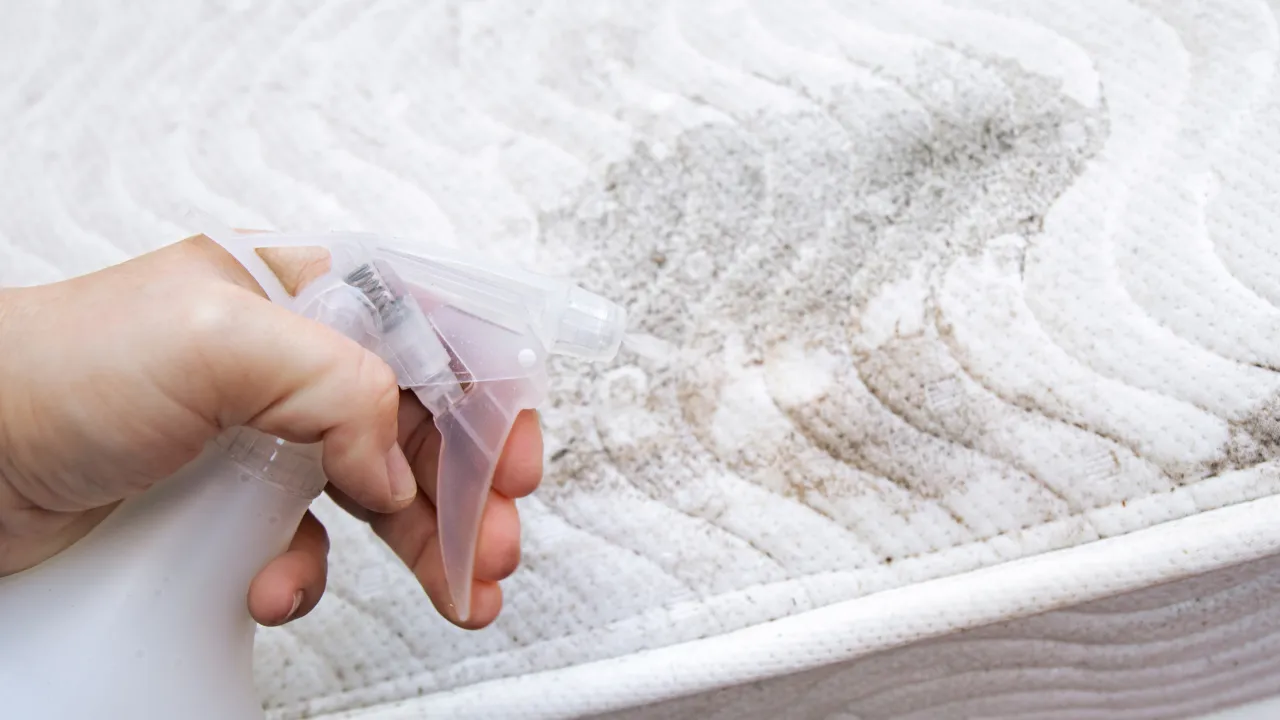Maintaining optimal reproductive health involves considering various factors, from diet and sleep to stress resilience and environmental influences. While we often focus on the more prominent aspects of our health, it's important not to overlook a potential hidden culprit that could impact fertility: MOLD. In this article, we will delve into the connection between mold exposure and fertility, highlighting the potential risks and offering actionable prevention strategies for individuals concerned about their reproductive well-being.
Understanding Mold: More Than Just a Nuisance
Mold, a type of fungus, thrives in damp, warm environments, and it can be found both indoors and outdoors. You might be surprised to learn that "mildew" is a type of mold as well. Mold reproduces by releasing tiny spores into the air, which can be inhaled or come into contact with the skin. However, mold's impact on health isn't limited to spores; it also involves "mycotoxins," natural compounds that certain molds release and which can be harmful to human health.
The Intriguing Link between Mold and Fertility Health
Although direct research on the connection between mold and fertility health is limited, several studies have suggested potential associations between mold exposure and reproductive issues. Mold exposure has been linked to various adverse health effects, such as respiratory problems, allergies, and hormonal disruptions. These factors can indirectly affect fertility by disturbing the body's delicate hormonal balance.
1. Hormonal Imbalance:
Mold exposure can disrupt the endocrine system, which governs hormone production and regulation. Hormonal imbalances, especially those involving reproductive hormones like estrogen and progesterone, can interfere with ovulation, menstruation, and overall fertility.
2. Inflammation and Oxidative Stress:
Mold exposure can trigger inflammation and oxidative stress within the body. These processes can lead to cellular damage, potentially affecting reproductive organs, eggs, or sperm and, consequently, fertility.
3. Allergies and Asthma:
Mold spores are notorious for causing allergic reactions and asthma symptoms. Allergic reactions can create an inhospitable environment for reproductive cells, resulting in reduced fertility.
4. Toxic Mold:
Certain mold varieties, such as black mold (Stachybotrys chartarum), produce mycotoxins that are harmful to human health. Extended exposure to mycotoxins may impact reproductive health by damaging the DNA in eggs or sperm or disrupting hormonal pathways.
Prevention and Remediation: Safeguarding Fertility Health
To safeguard your fertility health and mitigate the potential risks of mold exposure, consider these preventive measures:
1. Maintain a Dry Environment:
Control humidity levels at home by utilizing dehumidifiers and promptly addressing leaks or water damage. It's essential to extend this consideration to your workplace and any other spaces you frequently occupy.
2. Ensure Proper Ventilation:
To reduce humidity, ensure adequate airflow in areas prone to moisture like bathrooms and kitchens. Use exhaust fans or open windows to maintain optimal ventilation.
3. Regular Cleaning:
Frequently clean and dry areas susceptible to mold growth, such as bathrooms. Avoid leaving damp items or wet surfaces unattended to discourage mold development.
4. Professional Inspection:
If you suspect a mold problem, consider hiring a professional mold inspector to assess your home for hidden mold growth. They can identify the source and recommend appropriate remediation measures.
Studies Shedding Light on Mold Exposure and Fertility
While further research is needed to establish definitive causation, several studies have explored potential connections between mold exposure and fertility-related issues:
- "The Impact of Indoor Air Quality on Chronic Rhinosinusitis and Fertility" (2009): This study found a significant association between mold exposure and an increased prevalence of chronic rhinosinusitis (CRS), a condition that can impact fertility by causing inflammation and affecting cervical mucus quality.
- "Mycotoxins in Women's Health: Fertility, Pregnancy, and Breast Milk" (2014): This review highlighted the potential impact of mycotoxins on fertility, ovarian function, and pregnancy outcomes, suggesting that mycotoxin exposure could disrupt hormone regulation.
- "Residential Dampness and Human Health: A Review" (2011): While not exclusively focused on fertility, this review explored associations between dampness-related exposures, including mold, and adverse reproductive outcomes like preterm birth and low birth weight.
- "Exposure to Mold and Male Sexual Dysfunction: A Cross-Sectional Study" (2017): This study suggested a link between mold exposure and male sexual dysfunction, including erectile dysfunction and decreased sexual desire.
Tips for Minimizing Mold Exposure and Enhancing Fertility Health
To optimize fertility health and minimize the risk of mold exposure, consider these proactive measures:
- Control Moisture Levels: Use dehumidifiers to maintain humidity below 50%. Promptly address leaks and water damage. Visually inspect your home and office spaces regularly to monitor, especially in basements, crawl spaces,attics and other places that aren’t seen regularly.
- Prioritize Ventilation: Ensure proper airflow in moisture-prone areas like bathrooms and kitchens. Using an air filter is also beneficial to reduce mold spores that naturally arrive indoors from the outdoors.
- Regular Cleaning: Clean and dry mold-prone areas routinely, using mold-resistant products when possible. We like the non-toxic mold-specific home cleaning products from MicroBalance
- Dry Wet Surfaces and Items: Avoid leaving damp items or surfaces unattended.
- Check for Condensation: Address condensation on windows, pipes, and walls, especially during colder and more humid months.
- Monitor Indoor Plants: Avoid overwatering indoor plants.
- Address Plumbing Issues: Regularly inspect and maintain plumbing to prevent leaks.
- Improve Airflow: Arrange furniture to promote air circulation and avoid blocking vents.
- Professional Inspection: Hire a professional mold inspector if you suspect mold growth or persistent moisture issues.
In conclusion, while the research on mold's direct impact on fertility health is ongoing, it's crucial to acknowledge the potential risks associated with mold exposure. Mold can indirectly affect fertility by disrupting hormonal balance, causing inflammation, and triggering allergic reactions. By taking preventive measures, maintaining a clean and dry living environment, and promptly addressing mold issues, individuals can mitigate potential risks to their reproductive health. If concerns persist, consulting a healthcare professional knowledgeable in environmental health can provide further guidance and support. Remember, your reproductive health is worth safeguarding against all potential threats, even the subtle ones like mold.

